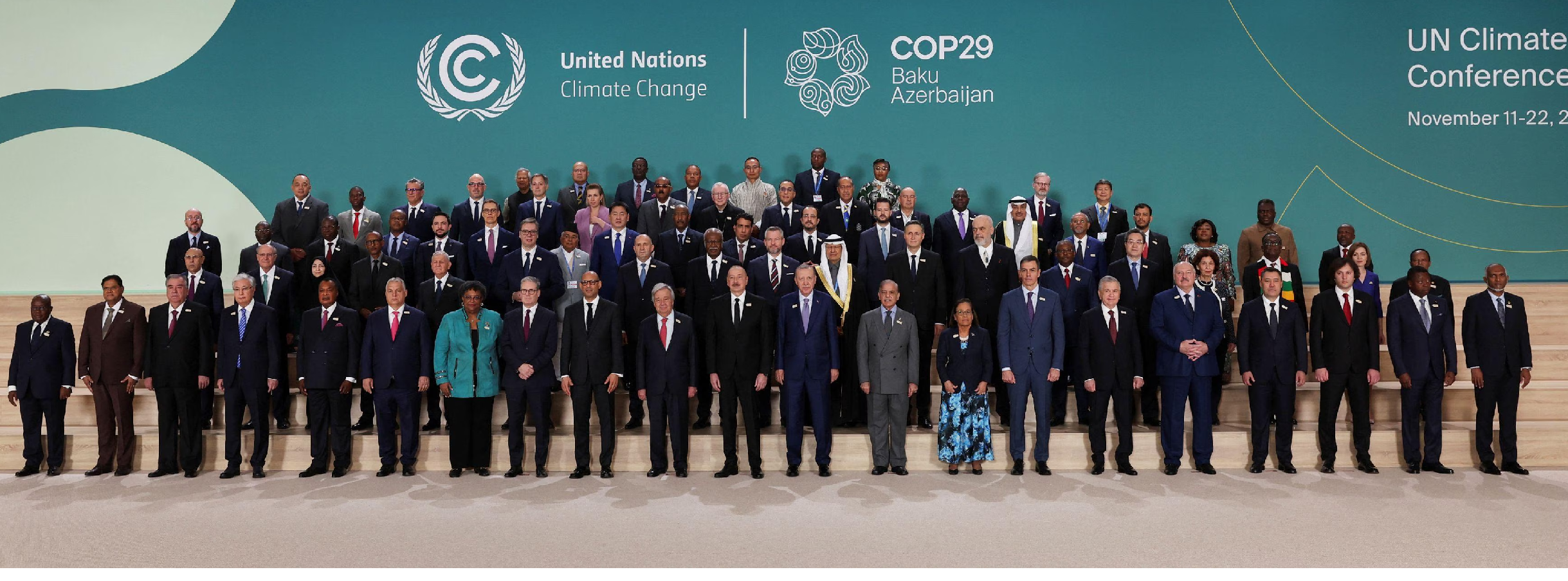
Climate Accountability Matrix launched at COP29: G20 countries need to step up climate action, says CAM
PTI Baku: Most G20 members, including the US, Australia, Canada, Saudi Arabia, and Turkey, need to significantly step up climate action, according to a Climate Accountability Matrix launched at COP29 here on Tuesday. The Climate Accountability Matrix (CAM) is a first-of-its-kind assessment tool from the Global South to analyse countries' performance in climate aspects beyond mitigation, including adaptation and means of implementation. As against the rich nations, countries from the Global South, such as India and South Africa have made significant efforts in climate action by actively participating in key agreements, undertaking reasonable efforts domestically and adhering to their obligations, the CAM, featured in a report by independent, New Delhi-based think tank the Council on Energy, Environment and Water (CEEW), found.
The CEEW report Are G20 Countries Delivering on Climate Goals? Tracking Progress on Commitments to Strengthen the Paris Agreement unveiled at the COP29 here introduces the CAM as a benchmark for evaluating climate performance. More than 190 countries have gathered at this Azerbaijan capital for the 29th round of annual climate negotiations, the Conference of Parties, COP29. Despite COP28's ambitious goals, developed countries have fallen short on accountability, a critical aspect emphasised by CEEW CEO Arunabha Ghosh. He urged COP29 to prioritise holding countries responsible, stating, The COP29 must be about accountability. Developed countries, as the largest historical emitters, must expedite emissions reduction, while also raising climate finance both in quality and quantity.
Without improved funding, the poorest will continue to bear the brunt of climate impacts, undermining sustainable development, Ghosh said. The CEEW study placed G20 countries in four categories: leaders, reasonable efforts, limited efforts, and needs improvement. Notably, none of the G20 countries qualified as climate leaders. Developed nations such as France and the UK showed strong international cooperation, while developing countries such as India and South Africa demonstrated notable domestic efforts. However, major emitters, including the US and Canada, continue to exhibit inconsistent participation in climate agreements, casting doubt on their commitment, it said. But even the countries making reasonable progress must improve sectoral robustness and create an enabling environment for ambitious climate actions, the report pointed out. In terms of stepping up ambitions, India is demonstrating leadership, the report highlighted. Between 2020 and 2030, Indian policies for the power, residential, and transport sectors such as the National Solar Mission, UJALA programme, and FAME scheme for EVs will reduce emissions by almost 4 billion tonnes compared to a no-policy scenario.
 English daily published in Bengaluru & Doha
English daily published in Bengaluru & Doha






